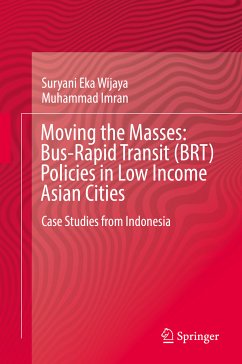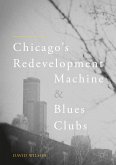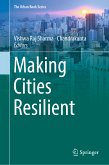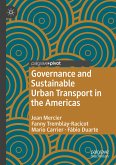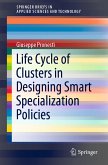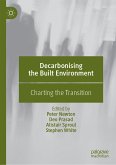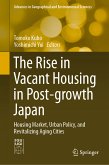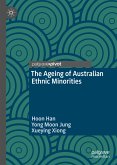Moving the Masses: Bus-Rapid Transit (BRT) Policies in Low Income Asian Cities (eBook, PDF)
Case Studies from Indonesia


Alle Infos zum eBook verschenken

Moving the Masses: Bus-Rapid Transit (BRT) Policies in Low Income Asian Cities (eBook, PDF)
Case Studies from Indonesia
- Format: PDF
- Merkliste
- Auf die Merkliste
- Bewerten Bewerten
- Teilen
- Produkt teilen
- Produkterinnerung
- Produkterinnerung

Hier können Sie sich einloggen

Bitte loggen Sie sich zunächst in Ihr Kundenkonto ein oder registrieren Sie sich bei bücher.de, um das eBook-Abo tolino select nutzen zu können.
Public transport in low-income Asian (LIA) cities fails to meet people's mobility needs, generates high greenhouse gas (GHG) emissions and worsens social exclusion. Following successful Bus Rapid Transit (BRT) projects in Bogota and Curitibá, LIA countries promoted BRT in their large to medium-sized cities. However, the political and institutional structure distinctive to LIA cities makes their implementation difficult. This book investigates policy tensions by examining the planning and attempted implementation of BRT projects, taking Bandung and Surabaya in Indonesia as case studies. It…mehr
- Geräte: PC
- ohne Kopierschutz
- eBook Hilfe
- Größe: 4.07MB
![Chicago's Redevelopment Machine and Blues Clubs (eBook, PDF) Chicago's Redevelopment Machine and Blues Clubs (eBook, PDF)]() David WilsonChicago's Redevelopment Machine and Blues Clubs (eBook, PDF)40,95 €
David WilsonChicago's Redevelopment Machine and Blues Clubs (eBook, PDF)40,95 €![Making Cities Resilient (eBook, PDF) Making Cities Resilient (eBook, PDF)]() Making Cities Resilient (eBook, PDF)121,95 €
Making Cities Resilient (eBook, PDF)121,95 €![Governance and Sustainable Urban Transport in the Americas (eBook, PDF) Governance and Sustainable Urban Transport in the Americas (eBook, PDF)]() Jean MercierGovernance and Sustainable Urban Transport in the Americas (eBook, PDF)48,95 €
Jean MercierGovernance and Sustainable Urban Transport in the Americas (eBook, PDF)48,95 €![Life Cycle of Clusters in Designing Smart Specialization Policies (eBook, PDF) Life Cycle of Clusters in Designing Smart Specialization Policies (eBook, PDF)]() Giuseppe PronestìLife Cycle of Clusters in Designing Smart Specialization Policies (eBook, PDF)40,95 €
Giuseppe PronestìLife Cycle of Clusters in Designing Smart Specialization Policies (eBook, PDF)40,95 €![Decarbonising the Built Environment (eBook, PDF) Decarbonising the Built Environment (eBook, PDF)]() Decarbonising the Built Environment (eBook, PDF)44,95 €
Decarbonising the Built Environment (eBook, PDF)44,95 €![The Rise in Vacant Housing in Post-growth Japan (eBook, PDF) The Rise in Vacant Housing in Post-growth Japan (eBook, PDF)]() The Rise in Vacant Housing in Post-growth Japan (eBook, PDF)105,95 €
The Rise in Vacant Housing in Post-growth Japan (eBook, PDF)105,95 €![The Ageing of Australian Ethnic Minorities (eBook, PDF) The Ageing of Australian Ethnic Minorities (eBook, PDF)]() Hoon HanThe Ageing of Australian Ethnic Minorities (eBook, PDF)40,95 €
Hoon HanThe Ageing of Australian Ethnic Minorities (eBook, PDF)40,95 €-
-
-
Dieser Download kann aus rechtlichen Gründen nur mit Rechnungsadresse in A, B, BG, CY, CZ, D, DK, EW, E, FIN, F, GR, HR, H, IRL, I, LT, L, LR, M, NL, PL, P, R, S, SLO, SK ausgeliefert werden.
- Produktdetails
- Verlag: Springer Nature Singapore
- Seitenzahl: 200
- Erscheinungstermin: 25. Februar 2019
- Englisch
- ISBN-13: 9789811329388
- Artikelnr.: 55340141
- Verlag: Springer Nature Singapore
- Seitenzahl: 200
- Erscheinungstermin: 25. Februar 2019
- Englisch
- ISBN-13: 9789811329388
- Artikelnr.: 55340141
- Herstellerkennzeichnung Die Herstellerinformationen sind derzeit nicht verfügbar.
Muhammad Imran is an Associate Professor and Programme Coordinator Resource and Environmental Planning at Massey University, New Zealand. His research focuses on generatingtheoretical and practical knowledge that contributes to sustainable transport policies in developed and developing Asian countries. His research has generated an in-depth understanding of institutional blockages to, and opportunities in, sustainable transport by arguing for greater recognition of the role of governance, history-politics nexus, and discourse on transport decision-making. Imran is the author of a book, Institutional barriers to sustainable urban transport in Pakistan published by Oxford University Press. Imran has received research grants from the Royal Society of NZ Marsden Fund, the NZ Transport Agency and has acted as a consultant for the World Bank.
